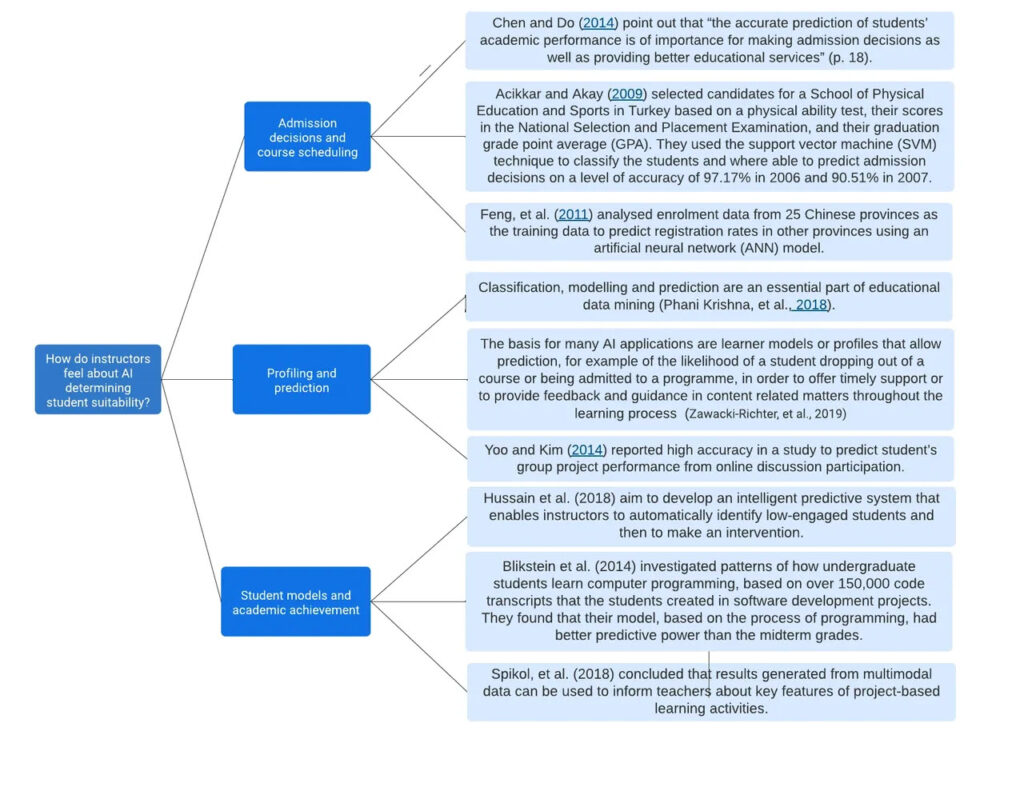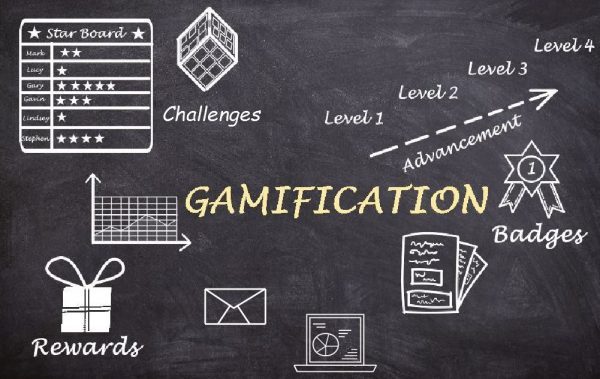In our discussion this week we were to outline our three potential plans of study that we plan to focus on in this course. We could select a study in any education or learning-based setting including K-12, higher education, instructional design, corporate, training, military, etc. As a reminder, our study proposal in this course must be purely qualitative (no mixed-methods or quantitative) in nature. Additionally, we are to include the following components in our study:
- educational psychology;
- educational technology; and
- social justice, human rights, or equity.
Also, we were asked to use our course readings as a resource when developing our research ideas and were to cite our sources in APA format in support of our proposal focus.
We will then use the feedback we receive from our instructor and classmates to further develop our Research Proposal presentation due at the end of the course. For this discussion, we were to submit our response via a concept map. We were allowed to use the concept map of our choosing.

References
Acikkar, M., & Akay, M. F. (2009). Support vector machines for predicting the admission decision of a candidate to the school of physical education and sports at cukurova university. Expert Systems with Applications, 36(3), 7228-7233. https://doi.org/10.1016/j.eswa.2008.09.007
Blikstein, P., Worsley, M., Piech, C., Sahami, M., Cooper, S., & Koller, D. (2014). Programming pluralism: Using learning analytics to detect patterns in the learning of computer programming. The Journal of the Learning Sciences, 23(4), 561-599. https://doi.org/10.1080/10508406.2014.954750
Chen, J., & Do, Q. H. (2014). Training neural networks tp predict student academic performance: A comparison of cuckoo search and gravitational search algorithms. International Journal of Computational Intelligence and Applications, 13(1), 145005-18. https://doi.org/10.1142/S1469026814500059
Feng, S., Zhou, S., & Liu, Y. (2011). Research on data mining in university admissions decision-making. International Journal of Advancements in Computing Technology, 3(6), 176-186. https://doi.org/10.4156/ijact.vol3.issue6.21
Hussain, M., Zhu, W., Zhang, W., & Abidi, S. M. R. (2018). Student engagement predictions in an e-learning system and their impact on student course assessment scoreshttps://doi.org/10.1155/2018/6347186
Spikol, D., Ruffaldi, E., Dabisias, G., & Cukurova, M. (2018). Supervised machine learning in multimodal learning analytics for estimating sucess in project-based learninghttps://doi.org/10.1111/jcal.12263
V.Phani Krishna, K., Mani Kumar, M., & S.G.Aruna Sri, P. (2018). Student information system and performance retrieval through dashboard. International Journal of Engineering & Technology (Dubai), 7(2.7), 682. https://doi.org/10.14419/ijet.v7i2.7.10922
Yoo, J., & Kim, J. (2014). Can online discussion participation predict group project performance? investigating the roles of linguistic features and participation patterns. International Journal of Artificial Intelligence in Education, 24(1), 8-32. https://doi.org/10.1007/s40593-013-0010-8
Zawacki-Richter, O., Marín, V. I., Bond, M., & Gouverneur, F. (2019). Systematic review of research on artificial intelligence applications in higher education – where are the educators? International Journal of Educational Technology in Higher Education, 16(1), 1-27. https://doi.org/10.1186/s41239-019-0171-0
Assignment Grade: 20/20



